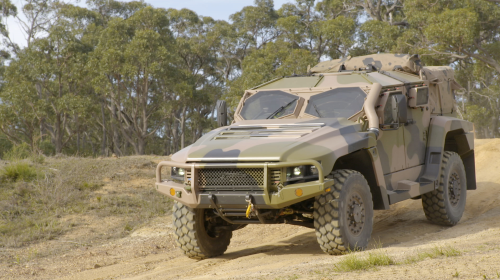
The Thales Hawkei must not exceed a weight target of 7 tonnes. The weight limit is dictated by the lifting capacity of the Chinook helicopter that will carry it into the field.
Composites offer strength to weight characteristics together with exceptional corrosion resistance and lifelong performance. They also offer the ability to produce complex shapes to enable multiple components to be moulded into one part which also helps to save on weight and helps reduce manufacturing costs.
Designers from Thales Australia rated these qualities highly when enlisting design advice for the manufacture of prototype parts for its Hawkei Protected Vehicle development.
Thales has already delivered six Hawkei vehicles to the Department of Defence. These are currently undergoing testing under the LAND 121 Phase 4 project which will ultimately involve providing up to 1,300 protected light vehicles. Subject to successful testing, final approval of the project is expected in 2015.
Thales, having seen the benefits gained from the use of composites during the prototype stage, is now considering extending the use of composites to other parts of the Hawkei.
RPC Technologies has been working closely with Thales during this pre-production phase to enhance vehicle design and to incorporate additional improvements - the aim being to further reduce weight, increase strength and reduce cost.
RPC Technologies has provided Thales with engineering support from concept to CAD modelling to FEA analysis and physical testing and validation capabilities. This has allowed the designs and composite material selection to be optimised for thickness to achieve optimum strength at a reduced weight and cost.




